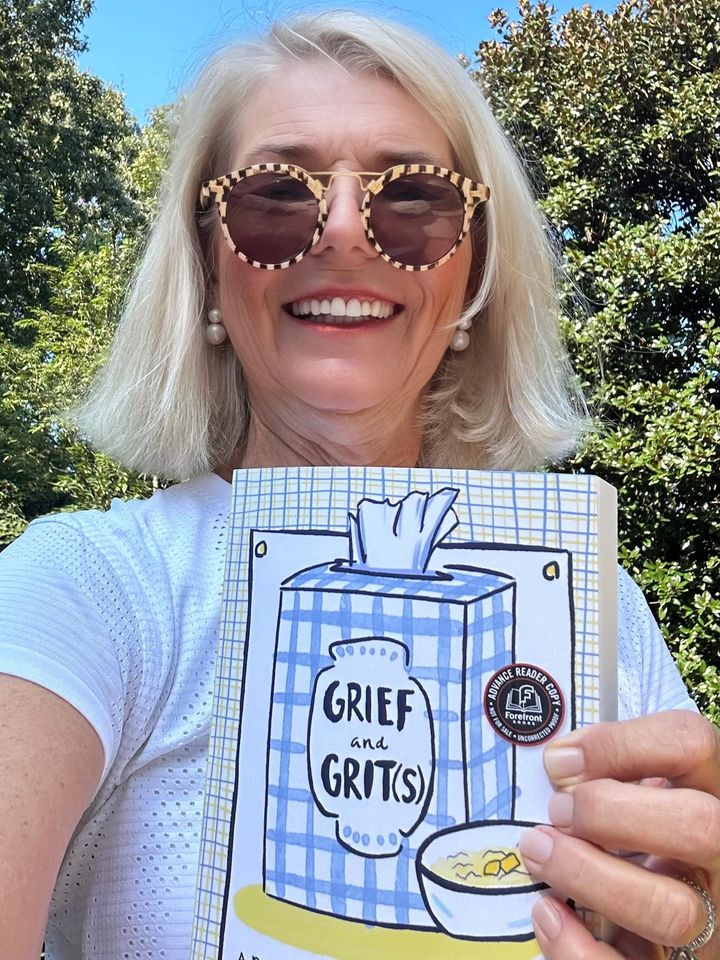No one has escaped the events of the last four years unscarred when the world felt like it was upside down. Marsha Gray Hill is no exception when she, like so many people around the world, lost a parent in the midst of the global pandemic. As she tried to process her grief, she directed her emotions into writing a book, Grief and Grit(s), designed to help others who not only suffered loss during the pandemic, but also wants them to know they are not alone.
“It was so important for me to write this book about my mama, Adaline Gray, that I lost during the pandemic. She wasn’t just a number but an extraordinary woman who lived an extraordinary life,” Marsha shares. “Losing a mom at any age is naturally difficult, but it was very traumatizing for me since she wasn’t allowed to die with dignity which everyone deserves. If we don’t talk about what happened to my mama and so many others, we’re going to miss out on everything we can learn from it and that’s why I wrote this book.”
In Grief and Grit(s), Marsha writes about the challenges she experienced when she unexpectedly found herself in the position of being a caregiver for her mother when she developed dementia and the assisted living apartment that was her residence was no longer an option. Marsha eventually had to hire someone to care for her mom when she could not longer do it on her own and then when the pandemic hit, it made it worse, “Our parents take care of us growing up and it never occurred to me that I’d end up taking care of my mama when she developed dementia and became like a child,” she says. “It was a challenge to find home care workers who were not only caring and trustworthy, but also compassionate for someone with dementia.”
When Marsha Gray Hill was recently interviewed on Tampa Bay’s Morning Blend, she shared these three guidelines for anyone who finds themselves in a similar care giving role like she did.
1. It is important to get support and not go it alone. It’s so easy to get burned out so don’t be afraid to reach out to others, like family or friends, that may be able to help.
2. Make sure to research home care providers and options. When it’s not possible to care for a parent directly, it’s important to research the best facilities or home care providers that are the best fit. And when working with an agency, be mindful that sometimes they’ll say they’re sending their best person when they may just be sending whoever is available.
3. Install a camera to remotely monitor that proper care is being provided. “One of the best things I did was install a camera so that I could remotely check in on my mom and see if she was getting proper care. We do this with children and nanny cams, to protect them so it’s natural to do this for the elderly who can’t speak for themselves,” Marsha shared. She also added that it’s important to let care givers know about the camera and she felt it helped them be more accountable.
Shocked by society’s neglect of the elderly, particularly evident during the pandemic, Marsha is on a mission to elevate awareness and dignity for seniors and through her book, Grief and Grit(s), she offers invaluable insights to help others navigate the complexities of grief and caregiving. She connects with readers on Instagram to share her ongoing journey. Her book is distributed by Simon & Schuster and available through her website at MarshaGrayHill.com, online outlets and at book stores across the country.
